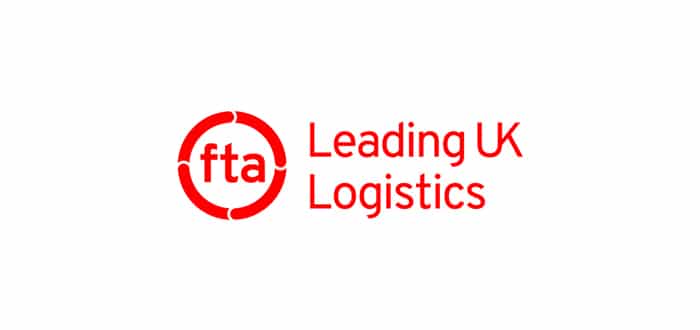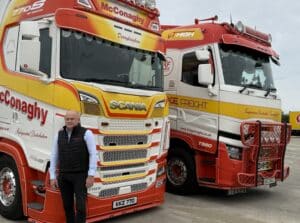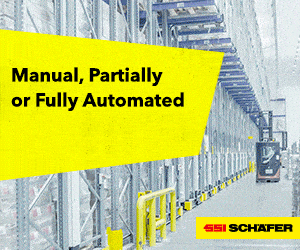If the UK’s trading relationships are to keep moving after Brexit, the Freight Transport Association’s James Hookham says the government’s Brexit team must prioritise the negotiation of aviation and road access agreements with the European Union. Speaking at the eTail Fulfilment and Returns Conference in London’s Canary Wharf today, Hookham made it clear that, without these agreements, the UK’s supply chain will not maintain connectivity:
“To say that everything will be ‘all right’ after Brexit is ignoring the real issue from a logistics perspective – that of continued access for vehicles and planes,” he said. “The government must move on from potential Customs arrangements discussions and prioritise separate agreements on international road transport and aviation to allow trucks and planes to keep moving between the UK and EU after Brexit. Traffic and trade will not flow between the UK and the Continent without this detail being finalised, and that would be disastrous for UK businesses.
“Leaving the Single Market means an end to the automatic rights for trucks to drive and planes to fly between the UK and the EU27 countries. The UK will also lose automatic access to the flying rights contained in EU aviation agreements negotiated with other countries, including the USA. Whatever the solution reached for Customs and Border issues, without an agreement on vehicle permits and access, the logistics sector will not be able to provide the materials the UK economy requires to keep Britain trading. Our sector is resilient and adaptable, as far as is possible, but without the parameters in which to work, resilience will not enable us to deliver on the needs of businesses, schools, hospitals and consumers.
“Should the UK leave the EU without an agreed air deal, and with the country no longer part of the EU’s aviation partnership, planes from 44 countries around the world would not be legally permitted to arrive or depart from the UK. This could be disastrous for businesses of all sizes which rely on just in time deliveries via the UK’s airports which connect them to the rest of the world. In addition, the lack of a road transportation deal would leave the UK with access to up to only 1,224 permits per year to allow British lorries to travel to and from the Continent. This number would not even account for the 10,000 lorries which pass through the Port of Dover alone daily.
“The logistics sector is committed to maintaining the UK’s connectivity with its customers on the Continent and further afield, but needs the requisite tools to enable it to do so. Without a deal on these key areas, how is the logistics industry expected to keep Britain trading?”
On behalf of its members, FTA has been raising the issue of air and road freight prioritisation with government contacts since the triggering of Article 50 in 2017. But, as Hookham says, other priorities seem to have taken hold:
“The time for talking is almost over, but no progress has been made on the basic need to move people and trade between the UK and its most significant trading partner – the EU – in the most effortless way possible. The logistics industry is ready and waiting to ensure that our shops, businesses, factories and hospitals continue to be stocked with whatever they need, but cannot do so without access. We are being set up to fail our customers.”
Efficient logistics is vital to keep Britain trading, directly having an impact on more than seven million people employed in the making, selling and moving of goods. With Brexit, new technology and other disruptive forces driving change in the way goods move across borders and through the supply chain, logistics has never been more important to UK plc. A champion and challenger, FTA speaks to Government with one voice on behalf of the whole sector, with members from the road, rail, sea and air industries, as well as the buyers of freight services such as retailers and manufacturers.














